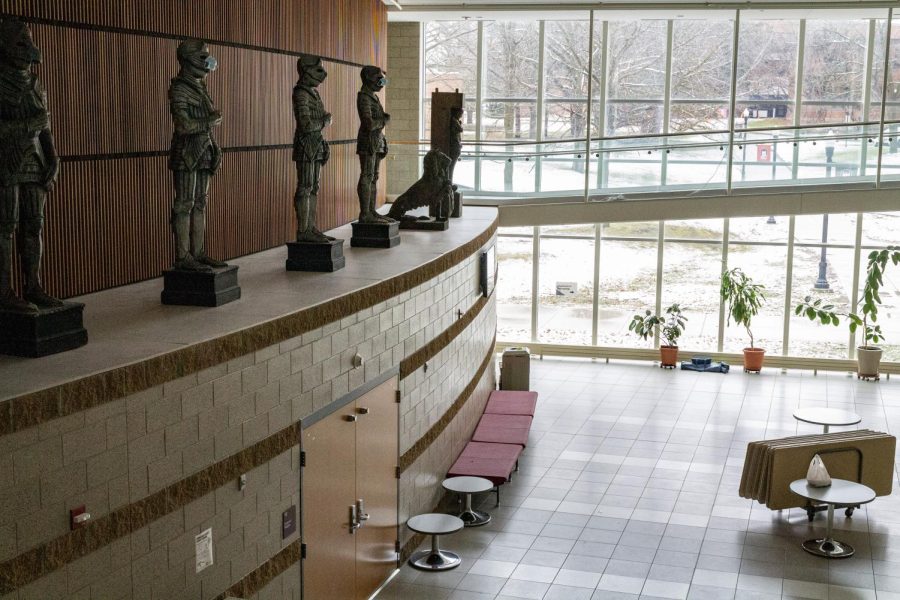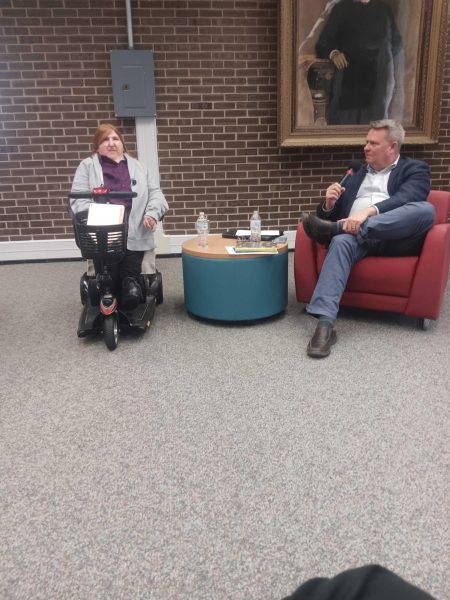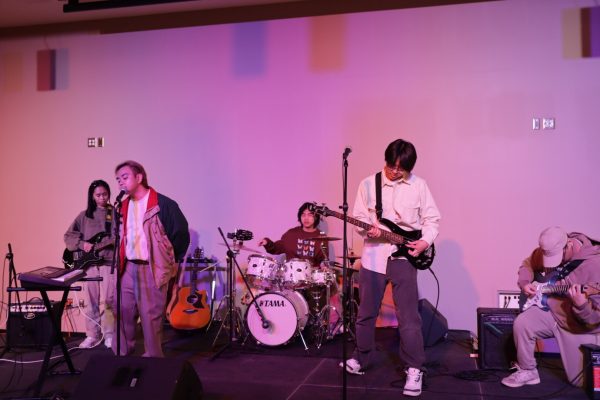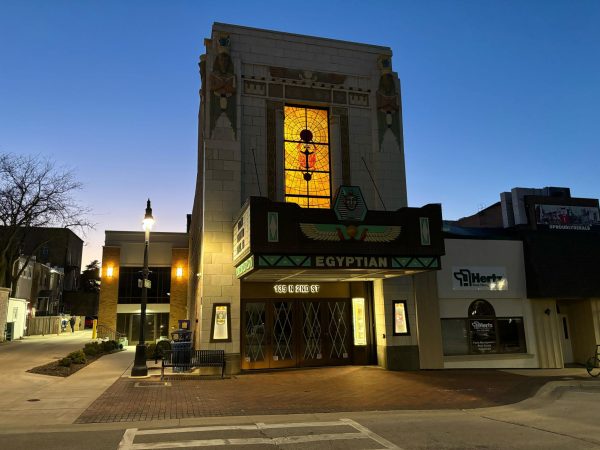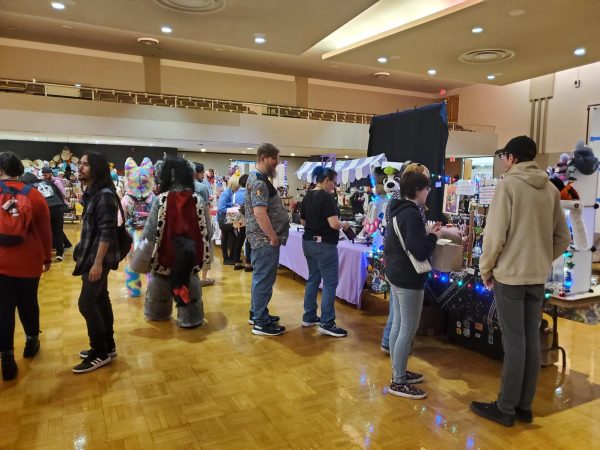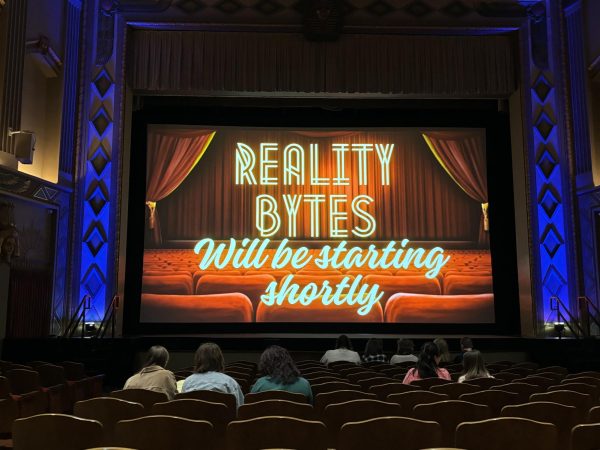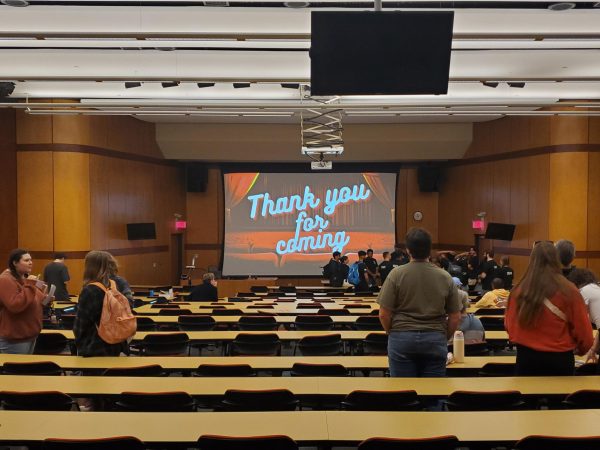NIU School of Theatre and Dance to perform plays by Ukrainian playwrights
NIU School of Theatre and Dance will premiere “God of Carnage” at 7:30 p.m. on Nov. 4 at the Sally Stevens Players Theatre in the Steven’s Building. (Madelaine Vikse | Northern Star)
April 2, 2022
DeKALB — The NIU School of Theatre and Dance will host a night of readings from Ukrainian playwrights at 7:30 p.m. Sunday in the O’Connell Theatre in the Stevens Building, 200 University Circle Avenue.
Admission is free, but donations are welcomed and will benefit two charities: GlobalGiving and the Ukrainian Emergency Art Fund. If you are unable to attend the event in person, it will also be streaming live on Zoom.
The evening of performances is part of the Ukrainian Component of the World-Wide Reading Project. The project showcases brand new plays about the war in Ukraine from The Theatre of Playwrights in Kyiv.
The night of readings is organized and produced by Gibson Cima, a professor of theater history, Jonathan McLawhorn, a senior theater studies major and Chris Anthony, a theater and dance graduate teaching assistant. Horrified by what was going on in Ukraine, they got started on this event just a couple of days before spring break.
“I was watching in shock and horror as the tanks rolled into Ukraine and we started to get the terrible news,” Cima said. “Because I’m a theatre artist my first reaction is, ‘we have to make work about this.’”
McLawhorn signed on to help with this event so he could put his frustrations into action to hopefully bring others’ attention to the cause.
There will be a total of six plays performed on Sunday night, split up into two categories: “The War” and “Before.” The first three plays in “The War” section were written in the last two months.
Cima personally contacted the playwrights to hear their stories and express his gratitude for letting him use their plays. He said that he hopes the performances will help humanize the conflict beyond what people see from their media feeds.
The first play, “A Dictionary of Emotions in Wartime,” written by Yelena Astasyeva and translated by John Freedman, details a list of the impressions of war in Ukraine. “A Sense of War,” written by Julia Gonchar and translated by John Farndon, is about a Ukrainian woman living in Egypt as the war in Ukraine begins.
The final play in “The War” section is “Our Children,” written by Natalia Blok and translated by John Freedman and Natalya Bratus. It is a play about a Ukrainian woman worrying about her children during the war.
To start the “Before” section is the play “In the Darkness” by Natalia Blok, translated by Daisy Hayes. The play is about a Ukrainian woman coming to terms with her sexuality. “Pussycat in Memory of Darkness,” written by Neda Nejdana and translated by John Farndon, is a monologue about a refugee from Donbas.
The final play of the night is “Peace and Tranquility” written by Andrij Bondarenko, translated by John Farnon and is about the national and personal history of the war.
McLawhorn said he hopes that audiences will gain an understanding of what is happening and donate to good causes.
“We need to recognize signs and (have) a correct response when people with that much power are inflicting it on people who are weaker than them and taking advantage of them, simply because they can,” McLawhorn said.



